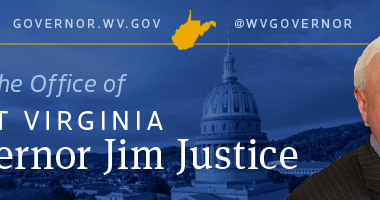JIM MCCONVILLE
The Journal of Martinsburg
CHARLESTON — Are all income taxes created equal?
Or more specifically, is a sales tax more effective than an income tax in generating state revenue?
In West Virginia, the question takes on added resonance as officials consider whether overhauling the way state government generates tax money will boost or break the economy.
The question facing the West Virginia Legislature is whether it can fund government by reducing the state’s income tax rate while raising the sales tax.
One bill passed by the state Senate calls for raising the 6 percent general sales and use tax by 1 percent and applying it more broadly to professional services. The bill would impose the tax on food at 3.5 percent, and also cut the 5 percent coal severance tax over five years to 2.5 percent.
Advocates of increasing the sales tax said it will be an economic catalyst to re-invigorate West Virginia’s economy.
John Deskins, director of the Bureau of Business and Economic Research at West Virginia University, said a percent or more drop in the state’s income tax may encourage both businesses and consumers to invest.
“If you are a small business person thinking about investing, or an entrepreneur, you’re thinking about if ‘I invest this much, what’s my after-tax return on investment going to be?’” Deskins said. “This is going to provide a little sweeter pot for somebody to invest, because they are going to keep more of their investment, more of their proceeds after they pay that tax cut.”
Deskins said a shift to a sales tax-based system from an income tax-based one will provide strong consumer incentives to save.
“A worker may be inclined to work more overtime now,” Deskins said. “Instead of giving that 6.5 percent of my extra earnings, I’m only giving up five point something percent of extra earnings. It does provide good incentives.”
One tax expert said those states that have switched to higher sales taxes have seen little impact to the bottom line.
“We’ve found no evidence that moving from an income tax to a sales tax actually increases the likelihood of new businesses coming, or growth in the state,” said Kim S. Rueben, senior fellow at the Urban-Brookings Tax Policy Center in Washington, D.C. “There is not any evidence that it actually increases growth.”
Critics of a higher sales tax also claim it puts more of the tax burden on the shoulders of middle- and lower-incomes residents.
“These changes will only exacerbate income inequality and make it harder for low- and middle-income families to make ends meet,” said Ted Boettner, executive director of the the West Virginia Center on Budget and Policy.
Rueben concurs.
“In a state like West Virginia, moving from an income tax to a sales tax — and in part increasing reliance on the sales tax — expands the sales tax to food, and moves from a progressive to a regressive tax system,”Rueben said.
A higher sales tax also will make it harder for lower-income consumers to purchase basic staples, Rueben said.
“It’s because more of the things that lower-income families buy are taxed in terms of them being more goods than services,” Rueben said. “At this income level, consumers basically
POTENTIAL REAL ESTATE DRAW
One real estate expert said eliminating the income tax would serve as an incentive to draw new businesses and residents to the Eastern Panhandle, where Maryland and Virginia have top-level income taxes up to 5.8 percent.
“It should bring more people,” said Adam Shively, owner of 4StateRealEstate in Charles Town. “Being that we are already lower priced that the states around us, it should incentivize them more to come over here. And the more rooftops you have, the more commercial development you can have as well.”
With the growth of the Washington-Baltimore metropolitan area, high-earners in Maryland and Virginia may be drawn by the dual incentive of lower housing costs and no state income tax.
However, Shively said the Legislature’s recently proposed reduction — rather than complete elimination — of West Virginia’s personal income tax may not be a sweet enough incentive to draw residents to the Eastern Panhandle.
“It’s a big deal if you can say the state eliminates its income tax — that’s huge,” Shively said. “But when it’s only a reduction, that’s a different story. It’s not something where people from other states are going to look at it and say, ‘we need to relocate there.’”
West Virginia Chamber of Commerce President Steve Roberts said the benefits of raising the state sales tax far eclipse any increased costs.
“We think that some (sales) tax increase is preferable to Draconian tax cuts in higher education and health care through the Department of Health and Human Resources and in K-12 funding formula,” Roberts said. “The vast majority of West Virginians will not be paying a whole lot more in tax, but will also not face the hardships of losing health care or having our universities cut their programs by tens of millions of dollars.”





